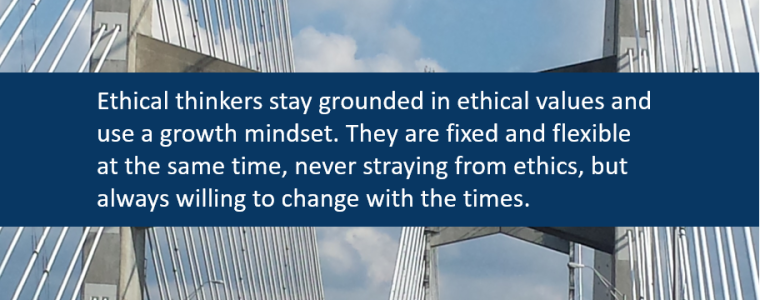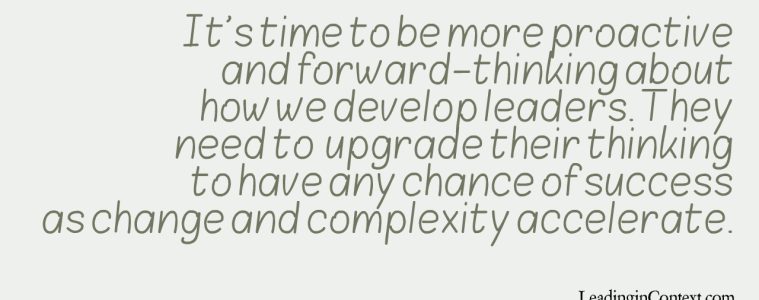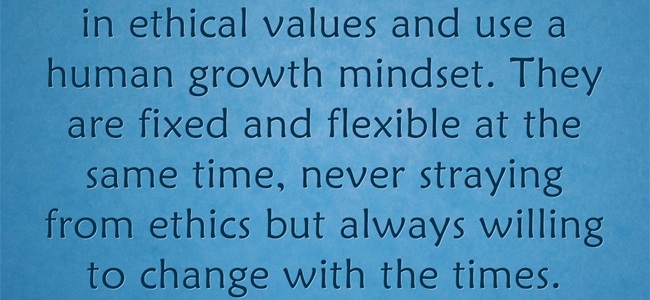By Linda Fisher Thornton Openness to learning about other cultures has become a necessary component of leadership. One way to help people respect cultural differences is to build what UNESCO calls “intercultural competence.” To accomplish this, we need an open mind, and a willingness to learn from others who do not think or live as we do.
Tag: what is ethical leadership
What Role Does Exclusion Play in Hate and Violence? (Part 3)
By Linda Fisher Thornton One of the thinking traps that people fall into is putting people into categories. This may result in assigning a derogatory label to the category, and making blanket statements about how "all people" from that category are a certain way.
What Role Does Exclusion Play in Hate and Violence? Part 2
By Linda Fisher Thornton Moral exclusion includes using an insider mindset and thinking that others (who are not members of the group) as not worthy of protecting. If you're not yet familiar with moral exclusion, this post may be helpful background on differences in world views and selective inclusion.
What Role Does Exclusion Play in Hate and Violence? Part 1
By Linda Fisher Thornton Hate speech and violence do not adhere to ethical values. An ethical person will quickly rule them out due to the harm they cause to others. But even when someone wants to be an ethical person, there are problems with human thinking that can enable hate and violence to happen.
Ethical Leadership Development: 15 Important Elements
By Linda Fisher Thornton Since moral growth is a lifelong pursuit, moral education needs to start early, and it needs to continue throughout our professional careers. This requires quite a bit more effort than just doing an "annual ethics training." Since ethical leadership itself is multidimensional and nuanced, any ethical leadership development for leaders must be multifaceted and nuanced.
10 Quotes to Inspire Leaders in 2024 (Part 2)
By Linda Fisher Thornton This series includes 10 quotes (linked to blog posts with leadership guidance) to inspire you and help you improve your leader development as we head into the new year. Part 1 included the first 5. Here are 5 more:
10 Quotes to Inspire Leaders in 2024 (Part 1)
By Linda Fisher Thornton This series includes 10 quotes (linked to blog posts with leadership guidance) to inspire you and help you improve your leader development as we head into the new year. Part 1 includes the first 5.
Hallmarks of Ethical Leadership (Part 3)
By Linda Fisher Thornton In Hallmarks of Ethical Leadership Part 1and Part 2, I shared 6 special qualities, behaviors and outcomes that define ethical leadership. This week I’ll share three more. These are intentional actions ethical leaders take to stay competent as things change around them.
Hallmarks of Ethical Leadership (Part 2)
By Linda Fisher Thornton In Hallmarks of Ethical Leadership (Part 1) I shared 3 special qualities or behaviors that define ethical leadership. These three additional leadership behaviors even more directly impact others in a positive way.
Hallmarks of Ethical Leadership (Part 1)
By Linda Fisher Thornton How do you recognize an Ethical Leader? Today I’ll share 3 special approaches to the leadership role that are central to ethical leadership. These are ways that ethical leaders understand their roles and responsibilities in relation to others and world.
10 Leadership Lessons From Pokemon Go
By Linda Fisher Thornton
I resisted playing the wildly popular game Pokemon Go as long as I could, but the world was playing it (including my teenagers) so awhile back I decided to give it a go. As I learned the basics of the game I noticed that its structure is aligned with some of the principles of good leadership. Whether that similarity is accidental or intentional, I can't say, but I am sharing my observations in this post.
Responding (Ethically) To An Overwhelmed Employee
By Linda Fisher Thornton "The issue of the overwhelmed employee looms large" according to Josh Bersin, Bersin by Deloitte. (Are You an Overwhelmed Employee? New Research Says Yes, LinkedIn). Employees are having a hard time managing an overload of information and tasks, and the problem is not getting any better.
Ethical Leaders Care (Part 4)
By Linda Fisher Thornton I wonder what our workplaces would be like if every leader cared. Most leaders care about their own well-being. But what if every leader cared about others? How would things be different? In an organization where every leader cared, wouldn’t we experience improved employee engagement and customer retention? Wouldn’t it be easier to recruit and retain talented and dedicated employees? Wouldn’t we be able to get more done?
Ethical Leaders Care (Part 3)
By Linda Fisher Thornton Demonstrating care is one of the hallmark requirements of good leadership. In addition to caring about what happens in our own careers, we must CARE about people, about their success, and about creating a positive work environment. If leaders don’t seem to care, that numbs the organization’s culture, disabling the natural systems that would prevent and identify ethical risks.
Ethical Leaders Care (Part 2)
By Linda Fisher Thornton Using an ethics of care changes how we think and act as leaders. It helps us remember that each person is important and that treating each other with care is part of our shared human experience. Caring shows that we know that people are more than task-doers and that leading is more than tactical, more than obligatory, more than just a job













